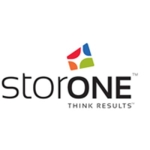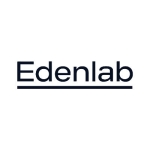What is our primary use case?
My use case for the solution includes both business and personal aspects. Personally, I run a lot of file and storage activities at home, managing database operations, and I prefer using NetApp as my backend storage to store data in the cloud instead of relying on third parties storage.
For the business case at my company, we utilize it effectively, and I support it myself by troubleshooting NetApp issues. In our organization, we mostly use NetApp ONTAP. We also use some features that come with NetApp, such as Cloud Insights and Systems Manager.
How has it helped my organization?
NetApp ONTAP has addressed key challenges for our business, especially because our cloud organization provides technology for customers. Our clients have requested multi-protocol support over the last few years. Before NetApp ONTAP, we had services that only supported a single protocol. Now, we have a product that allows customers to launch a single service usable by multiple and different clients, rather than needing to deploy two different products. That's the main game changer for us.
NetApp ONTAP has significantly improved our customer satisfaction and enabled faster service delivery at my organization. It makes it easier to launch and scale for customers. It performs better than other storage systems we've had before, and it supports multiple protocols. Big enterprise customers want storage systems that accommodate various client machines, including Linux, Windows, or Mac. It helps ensure that users can access the same backend effortlessly. Previous services were limited to a particular technology focus, but with NetApp ONTAP, this is no longer an issue, leading to a big win for us.
In choosing NetApp over other vendors, the primary reason was its accessibility and integration capabilities. It works well across various machines, whether they are Windows, Linux, Mac OS, or different types of servers. The hybrid usage is also beneficial for backups and disaster recovery, whether on-premises or in the cloud. I utilize the SnapMirror feature for disaster recovery, and its multi-availability zone support allows customers to launch in different zones to maintain access to their data even if one goes down.
When considering the evolving cybersecurity landscape and the increase in AI, NetApp ONTAP stands out with its own security features. It offers SnapLock for extra security and integration with Active Directory for user authentication. It helps manage secure access for customers in their organization while ensuring that users can authenticate using their username and password. We have never encountered any security issues because NetApp ONTAP includes security defenses built into the service, allowing end users to secure their data effectively.
What is most valuable?
NetApp ONTAP has absolutely been a game changer for our organization. We support and use different storage services, but this is the first time we have a service and storage that supports multiple protocols, such as SMB, NFS and iSCSI. It has been very helpful, especially for big enterprise customers that want to use these protocol services. It has been a big game changer for us and a big boost over the last few years.
The best features of NetApp ONTAP that I appreciate include its security and compliance aspects. It supports Active Directory for access authentication, requiring users to be domain members authenticated by the domain administrator. There is also antivirus integration for added protection. NetApp ONTAP complies with numerous certifications, such as PCI and HIPAA, which are critical in our industry.
NetApp ONTAP supports different protocols and gives very good performance. It scales very well and can integrate with different client machines. It also works well for backup and disaster recovery.
What needs improvement?
They can make it more accessible to individuals beyond just enterprises. Many everyday users gravitate towards storage solutions such as Google Drive or OneNote, so making NetApp services more user-friendly for everyone would be beneficial.
They could focus on making it more user-friendly. Currently, many users need a certain level of NetApp knowledge to operate it effectively, often relying on command-line interfaces that demand IT or technology skills. While there is a GUI available through Systems Manager, a lot of management still occurs at the command line, so enhancing the GUI for better usability could be a key focus area.
For our next technology investments, I believe that the AI aspect will be significant. Given the current landscape, many companies are investing in artificial intelligence, and we aim to do the same. I envision having AI or some form of service integrated with our NetApp ONTAP solution in the coming months or years to facilitate easier data searches for end users.
Buyer's Guide
NetApp ONTAP
February 2026
Learn what your peers think about NetApp ONTAP. Get advice and tips from experienced pros sharing their opinions. Updated: February 2026.
882,886 professionals have used our research since 2012.
For how long have I used the solution?
I've been using NetApp ONTAP for three years. When we launched it in my organization, I started supporting it.
What do I think about the stability of the solution?
There's always room for improvement for every service. I would rate it a nine out of ten for stability.
What do I think about the scalability of the solution?
It scales very well for me. I always use it, and I've enjoyed using it. It has very low latency. It gives the maximum throughput possible. I would rate it an eight out of ten for scalability.
We have 500 to 1,000 users. Our clients are small, medium, and enterprise businesses.
How are customer service and support?
My experiences with NetApp's support team have always been very positive. Their engineers know their stuff and perform well, so I would rate it an eight out of ten.
How would you rate customer service and support?
What was our ROI?
When it comes to return on investment and time savings, personally, I've saved a significant amount of time because of NetApp's multi-protocol support. I don't need to set up different services for Linux and Windows. Considering this, I would give it a nine out of ten.
What's my experience with pricing, setup cost, and licensing?
The price could be a little bit cheaper, but you get what you pay for. I would rate it an eight out of ten for pricing because it reflects the quality of the service offered.
What other advice do I have?
We work directly with NetApp ourselves to expand and add different features. There are a lot of features that we add on top of NetApp based on our customers' requests. We talk to our customers and ask them what else they would like to see. If it is a feature demanded by multiple customers, we work with NetApp to see if such a feature can be added to the service itself.
Overall, I rate NetApp ONTAP a nine out of ten. To elevate the solution to a ten, I believe adding AI integration would be crucial.
Disclosure: My company does not have a business relationship with this vendor other than being a customer.










